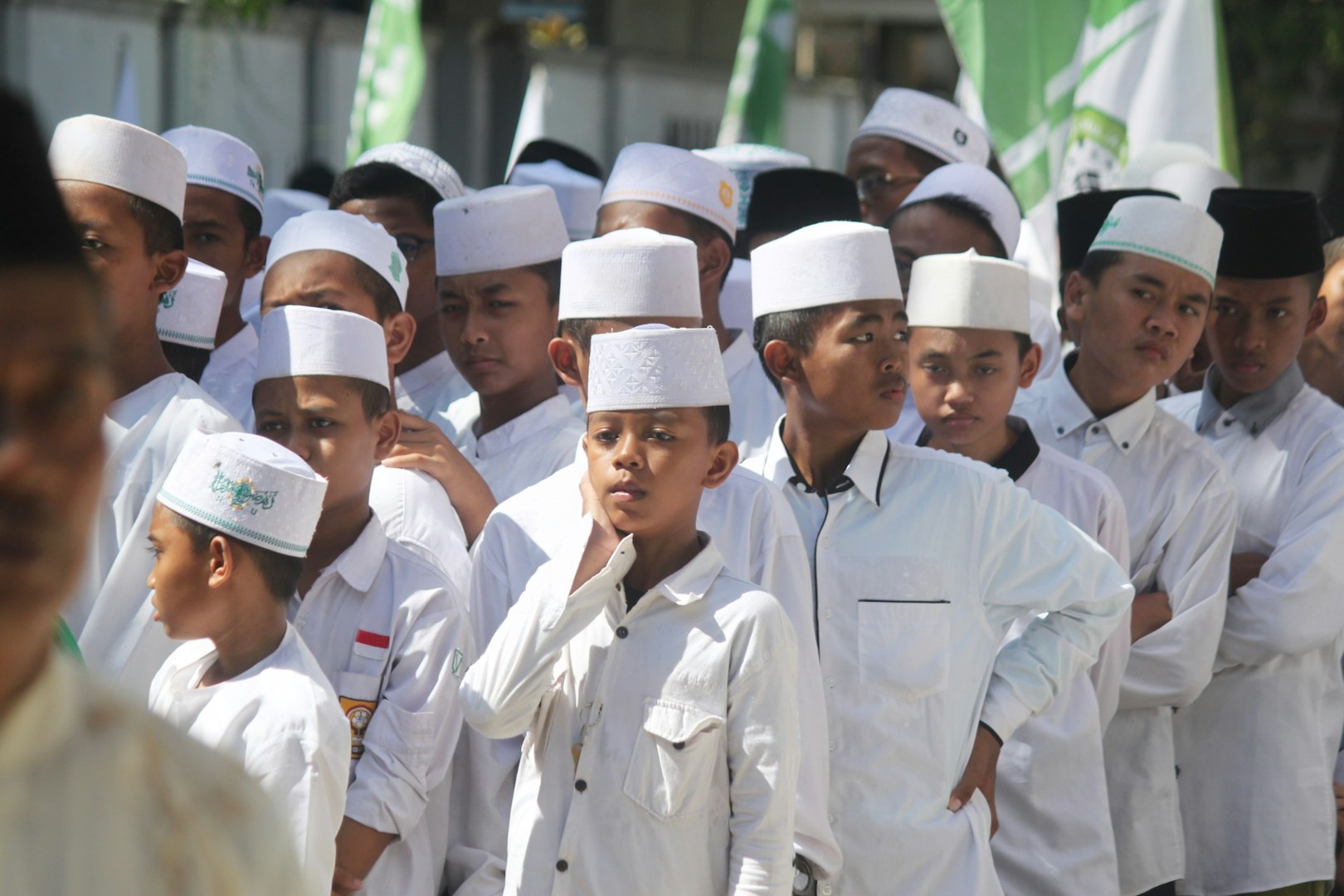Why I didn't dare to say: Eid Mubarak!
Susan Hamsis 10 April 2024

For many years during Eid periods, I haven't dared to openly say that I'll be celebrating Eid. I'd say I'd be spending time with family and therefore couldn't make it to this or that. I've also never dared to take time off from my job to celebrate Eid.
Deep down, there was a fear that I would be judged. That I would be seen as an outsider and not as one of the gang/group/work team. I was afraid that people's prejudices and ignorance would cause me trouble. So, I avoided openly saying Eid Mubarak on social media.
This caution has led me to build and live in a dual world. In one world, I'm "Susan" who is as Western as possible, she who is so modern and lives life like Crocodile Dundee with all her adventures. At the other end, we have "Susan" who jokes and laughs loudly at the dinner table during Eid and says Eid Mubarak. "Susan" who loves going to the Mosque because it brings such inner peace. Susan who eats African food with her hands and sings off-key to Amr Diab.
I didn't realize the cost I was paying for living in a dual world. What it truly cost your soul to hide a part of you to fit in. It has hindered me from so much in my life. It has hindered me from being authentically myself, which has been the greatest price.
In today's, and even yesterday's, polarized society Muslims often face a challenge unique to their faith: openly displaying their Muslim identity in the Western world. Behind the welcoming facade of diversity and tolerance lies a hidden reality of prejudice and stereotypes that creates a burdensome weight for many Muslims. In this article, I want to explore why some Muslims find it difficult to openly reveal themselves as Muslims in the Western world and the consequences this may have for their daily lives.
One of the main reasons some Muslims feel a sense of anxiety or hesitation when it comes to openly expressing their faith in the Western world is the increasing Islamophobia and negative stereotypes surrounding Islam and Muslims. Media reports linking Islam to terrorism and violence, as well as political rhetoric spreading hatred and xenophobia, create a climate of suspicion and fear towards Muslims. As a result, many Muslims experience a constant sense of being under surveillance or judgment by others, making it difficult to feel safe and accepted.
Another challenge for Muslims living in the Western world is the structural discrimination and social marginalization they may face because of their faith. Studies have shown that Muslims often experience discrimination in the job market, education system, and society at large. This form of institutional racism and Islamophobia can create barriers for Muslims to integrate and feel fully accepted in society, leading to feelings of alienation and loss of identity.
For many Muslims, the personal and emotional burden of being a visible representative of their faith can be overwhelming. Constantly having to explain and defend their faith, facing skeptical looks and microaggressive comments, is taxing on people's mental health and well-being. Many Muslims feel compelled to hide their faith or adapt their behavior to avoid conflicts or prejudiced questions, leading to a sense of self-betrayal and loss of authenticity.
In the multicultural society of Sweden, it is easy to assume that everyone can express their faith and culture without fear or prejudice. But for many Muslims, the reality is complex and often uncomfortable. Openly displaying oneself as a Muslim in Sweden can be a challenge that affects everything from everyday life to career.
In addition to the fear of prejudice and discrimination, some Muslims may also feel an inner conflict in balancing their religious identity with their identity as Swedish citizens. Many Muslims in Sweden strongly identify with both their religious and national identities, but navigating between the two can be complicated. They may feel pressured to assimilate and adapt to Swedish norms and values to fit into society, while also trying to preserve their religious and cultural heritage.
Despite these challenges, there is also a strong sense of community and pride among many Muslims in Sweden. Despite media reporting linking Islam to terrorism and violence that can reinforce stereotypes and create a climate of suspicion and fear towards Muslims, many Muslims strive to openly display their faith. They fight against prejudice and discrimination by being visible and active in society. By educating and informing about Islam and Muslims and promoting intercultural understanding and tolerance, we can work towards creating a society where everyone, regardless of faith or background, can feel welcome and respected.